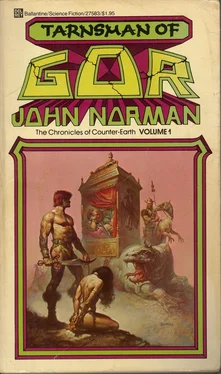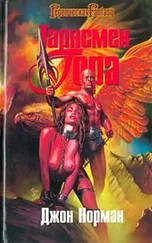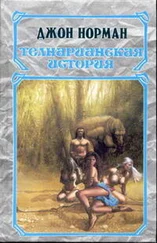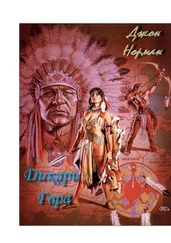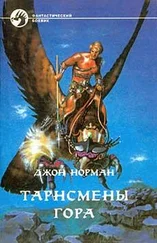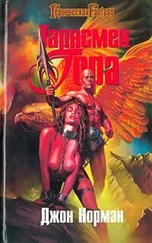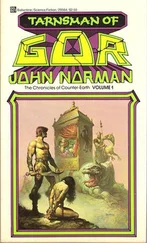The girl on the saddle before me stirred, the effect of the drug wearing off. She moaned softly and leaned back against me. As soon as we had taken flight, I had unfastened the restraining straps on her legs and wrists, leaving only the broad belt which lashed her securely to the back of the tare. I would not permit the plan of the Council to be followed completely, not in her case, even though she had agreed to play her part in the plan, knowing it meant her life. I knew little more about her than her name, Sana, and the fact that she was a slave from the City of Thentis.
The Older Tarl had told me that Thentis is a city famed for its tare flocks and remote in the mountains from which the city takes its name. Raiders from Ar had struck at the tarp flocks and the outlying cylinders of Thentis, and the girl had been captured. She had been sold in Ar on the Day of the Love Feast and had been purchased by an agent of my father. He, in accordance with the plan of the Council, had need of a girl who would be willing to give her life to be avenged on the men of Ar.
I could not help feeling sorry for her, even in the stein world of Gor. She had been through too much and was clearly not of the stock of the tavern girls; slavery would not have been a good life for her, as it might have been for them. I felt that, somehow, in spite of her collar, she was free. I had felt this even when my father had commanded her to rise and submit to me, accepting me as her new master. She had risen and walked across the room, her feet bare on the stone floor, and dropped to her knees before me, lowering her head and lifting and extending her hands to me, the wrists crossed. The ritual significance of the gesture of submission was not lost on me; her wrists were offered to me, as if for binding. Her part in the plan was simple, though ultimately fatal.
The Home Stone of Ar, like most Home Stones in the cylinder cities, was kept free on the tallest tower, as if in open defiance of the tarnsmen of rival cities. It was, of course, kept well-guarded and at the first sign of serious danger would undoubtedly be carried to safety. Any attempt on the Home Stone was regarded by the citizens of a city as sacrilege of the most heinous variety and punishable by the most painful of deaths, but, paradoxically, it was regarded as the greatest of glories to purloin the Home Stone of another city, and the warrior who managed this was acclaimed, accorded the highest honors of the city, and was believed to be favored by the Priest-Kings themselves.
The Home Stone of a city is the center of various rituals. The next would be the Planting Feast of SaTarna, the Life-Daughter, celebrated early in the growing season to insure a good harvest. This is a complex feast, celebrated by most Gorean cities, and the observances are numerous and intricate. The details of the rituals are arranged and mostly executed by the Initiates of a given city. Certain portions of the ceremonies, however, are often allotted to members of the High Castes.
In Ar, for example, early in the day, a member of the Builders will go to the roof on which the Home Stone is kept and place the primitive symbol of his trade, a metal angle square, before the Stone, praying to the Priest-Kings for the prosperity of his caste in the coming year; later in the day a Warrior will, similarly, place his arms before the Stone, to be followed by other representatives of each caste. Most significantly, while these members of the High Castes perform their portions of the ritual, the Guards of the Home Stone temporarily withdraw to the interior of the cylinder, leaving the celebrant, it is said, alone with the Priest-Kings.
Lastly, as the culmination of Ar's Planting Feast, and of the greatest importance to the plan of the Council of Ko-ro-ba, a member of the Ubar's family goes to the roof. at night, under the three full moons with which the feast is correlated, and casts grain upon the stone and drops of a red, wine like drink made from the fruit of the Ka-la-na tree. The member of the Ubar's family then prays to the Priest-Kings for an abundant harvest and returns to the interior of the, cylinder, at which point the Guards of the Home Stone resume their vigil.
This year the honor of the grain sacrifice was to be accorded to the daughter of the Ubar. I knew nothing about her, except that her name was Talena, that she was rumored to be one of the beauties of Ar, and that I was supposed to kill her.
According to the plan of the Council of Ko-ro-ba, exactly at the time of the sacrifice, at the twentieth Gorcan hour, or midnight, I was to drop to the roof of the highest cylinder in Ar, slay the daughter of the Ubar, and carry away her body and the Home Stone, discarding the former in the swamp country north of Ar and carrying the latter home to Ko-ro-ba. The girl, Sana, whom I carried on the saddle before me, would dress in the heavy robes and veils of the Ubar's daughter and return in her place to the interior of the cylinder. Presumably, it would be at least a matter of minutes before her identity was discovered, and, before that, she would take the poison provided by the Council.
Two girls were supposed to die that I might have time to escape with the Home Stone before the alarm could be given. In my heart I knew I would not carry out this plan. Abruptly I changed course, drawing on the four-strap, guiding my tarn toward the blue, shimmering wave of a mountain range in the distance. The girl before me groaned and shook herself, her hands, unsteady, going to the slave hood, which was buckled over her head.
I helped her unbuckle the hood and felt delighted at the sudden flash of her long blond hair streaking out beside my cheek. I placed the hood in the saddle pack, admiring her, not only her beauty but even more that she did not. seem frightened. Surely there was enough to frighten any girl — the height at which she found herself, the savage mount on which she rode, the prospect of the terrible fate that she believed to await her at our journey's end. But she was, of course, a girl of mountainous Thentis, famed for its fierce taro flocks. Such a girl would not frighten easily.
She didn't turn to look at me, but she examined her wrists, rubbing them gently. The marks of the original restraining straps, which I had removed, were just visible.
"You unbound me," she said. "And you removed my hood — why?"
"I thought you would be more comfortable," I replied.
"You treat a slave with unexpected consideration," she said. "Thank you."
"You're not — frightened?" I asked, stumbling on the words, feeling stupid. "I mean — about the tarn. You must have ridden taros before. I was frightened my first time."
The girl looked back at me, puzzled. "Women are seldom permitted to ride on the backs of tarns," she said. "In the carrying baskets, but not as a warrior rides." She paused, and the wind whistled past, a steady sound mingling with the rhythmical stroke of the tarn's beating wings. "You said you were frightened — when you first rode a taro," she said.
"I was," I laughed, recalling the excitement and the sense of danger.
"Why do you tell a slave that you were frightened?" she asked.
"I don't know," I replied. "But I was"
She turned her head away again and looked, unseeing, at the head of the great tarn as he plowed the wind.
"I did ride once before on the back of a tarn," she said bitterly, "to Ar, bound across the saddle, before I was sold in the Street of Brands."
It was not easy to talk on the back of the great taro, with the wind, and, besides, though I wanted to communicate with the girl, I felt I could not.
She was looking at the horizon, and suddenly her body tensed. "This is not the way to Ar," she cried.
"I know," I said.
"What are you doing?" She turned bodily in the straps, looking at me, her eyes wide. "Where are you going, Master?"
Читать дальше
